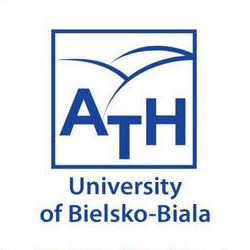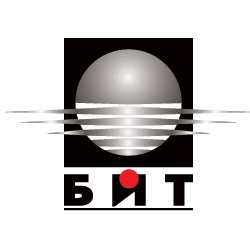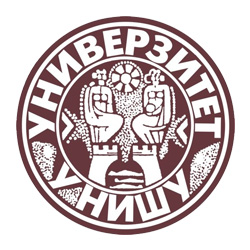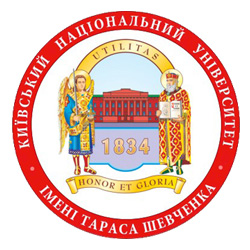The University of Bielsko-Biala - Poland (Coordinator)
AKADEMIA TECHNICZNO-HUMANISTYCZNA W BIELSKU-BIALEJ - Poland

The University of Bielsko-Biala (Akademia Techniczno-Humanistyczna w Bielsku-Bialej) was founded in October 2001 as an independent governmental academic institution. Previously, since 1969, it had been a branch of the Technical University of Lodz (Politechnika Lódzka). The machine-design, electrical and textile industries are traditional for the region so the main education areas have been long established. With the change in the economy, there have also developed other fields of study including management, humanities, environmental and computer sciences. At present, there are about 7000 students studying at five faculties that employ experienced academic staff embracing professors and other specialists. Their number is constantly growing and currently there work about 400 people, with 200 professors and doctors.
The University of Bielsko-Biala is open to new ideas and opportunities to improve modern educational tools. Internationalization has become here the most important objective of the University being constantly promoted through its participation in various European network projects.
The University cooperates with institutions from all over the world and the number of agreements is growing rapidly each year - nowadays the University of Bielsko-Biala has agreements with about 100 institutions in more than 25 countries.
The aim of the Computer Science and Automatics Department is to prepare students for graduate training in some specialized area of computer science, to prepare students for jobs in the industry, business or government, and to provide support courses for students in engineering and other fields requiring computing skills. Upon successful completion, students demonstrate proficiency in problem-solving techniques using the computer hardware and software, including both high-level and low-level programming languages and operating systems, in the analysis of complex problems and the synthesis of solutions to those problems. The graduates demonstrate comprehension of both modern software engineering principles and a breadth and depth of knowledge in the discipline of computer science.
The University of Bielsko-Biala has a dedicated Office of International Cooperation who will support the project at all stages with expert advice and monitoring along with a dedicated EU project finance team. The University of Bielsko-Biala has significant experience in international programs such as Tempus, Erasmus, FP6, FP7, and Horizon 2020. The University of Bielsko-Biala also became a partner of Erasmus Mundus programs, such as SIGMA, ERAWEB, EUROWEB. Currently, the University is involved in the following programs: ERASMUS+, SIGMA Agile, EUROWEB+, ERAWEB, and GREEN-TECH. The University of Bielsko-Biala has a dedicated Office of International Cooperation who will support the project at all stages with expert advice and monitoring along with a dedicated EU project finance team.
The University of Bielsko-Biala has significant experience in international programs such as Tempus, Erasmus, FP6, FP7, and Horizon 2020. The University of Bielsko-Biala also became a partner of Erasmus Mundus programs, such as SIGMA, ERAWEB, EUROWEB. Currently, the University is involved in the following programs: ERASMUS+, SIGMA Agile, EUROWEB+, ERAWEB, and GREEN-TECH.
The University of Bielsko-Biala has a dedicated Office of International Cooperation who will support the project at all stages with expert advice and monitoring along with a dedicated
EU project finance team.
University of Library Studies and Information Technology - Bulgaria (Partner)
UNIVERSITET PO BIBLIOTEKOZNANIE I INFORMACIONNI TEHNOLOGII - Bulgaria

ULSIT is a state university. The social mission of ULSIT is to prepare highly qualified, socially responsible personally motivated and adaptive to the labor market specialists. ULSIT has the strategic aim for sustainable development as a leading higher school with significant scientific, technological and innovative potential. ULSIT is a boutique university focused on four areas of knowledge Information Technologies, Cultural Heritage, Library Studies and History. ULSIT has the ambition to establish a sustainable triangle: academy, research and business and to continue the implementation of the so-called Third Mission of the universities – to work on projects with national, regional and European significance for transfer of innovations and knowledge in its main areas.
The University has gained educational, scientific, technology and innovation capacity, able to get actively involved in the European Research and Innovation Area by implementing projects under EU structural funds, Horizon 2020 and Erasmus+ Programmes, as well as in other international programs. ULSIT has partnerships with many European research and educational centers and high technology companies especially in the field of Internet technologies, cultural and creative industries, education technologies, etc. ULSIT is a member of the National STEM platform, Balkan Universities Network, UNESCO Chairs/UNITWIN Network., Erasmus Networks and others. ULSIT has two faculties: Faculty of Information Sciences and Faculty of Library Studies and Cultural Heritage. The University is accredited by the National Agency for Evaluation and Accreditation in Computer Science and ICT, Cyber Security, Library Studies, Cultural Heritage, and History. It offers 16 Bachelor programs and 28 Master’s programs, as well as a number of Doctoral programs.
There are few research and innovation institutes: for Cyber Security, for Research and Doctoral Education, for Research in the Field of Organisation, Management, and Preservation of Cultural Heritage and Institute of Leadership in an Information Environment. The ULSIT develop the Center for Innovations and Education as the heir of Center for Transfer of Technologies. Its main goal is to create and implement an innovative and entrepreneurial spirit at the university as methods for educating in the areas of science, technology, engineering, art, and math (STEAM).
University of Niš - Serbia (Partner)
UNIVERZITET U NIŠU - Serbia

The University of Nis was founded in 1965 as a state HE institution. It is a medium-sized, mature and well developed academic community, comprising 14 faculties and 9 centers. The faculties are Faculty of Civil Engineering and Architecture, Faculty of Economics, Faculty of Electronic Engineering, Faculty of Arts, Faculty of Law, Faculty of Mechanical Engineering, Faculty of Medicine, Faculty of Occupational Safety, Faculty of Philosophy, Faculty of Physical Culture, Faculty of Science and Mathematics, Faculty of Technology, Faculty of Education and Faculty of Agriculture.
Most of those faculties have composite structure, i.e. various departments, divisions or majors, offering wide and diversified study and research opportunities at both undergraduate and graduate levels, including opportunities to obtain a Ph.D. degree. Study programs are in compliance with the European standards in terms of admission requirements, duration of the study, mode of study and acquiring a diploma, particularly with regard to the outcome of the study program, or the students’ competence.
The University of Nis has multidisciplinary study programs, lifelong learning programs outside the study program curriculum and professional development and distance learning programs and supports continual and professional (scientific, research, and professional) general interest activity of its teachers, researchers, teaching assistants, and students, and supports their participation in national and international project activity as well as presentation and publication of the results of scientific activity. It conducts innovation activity with the purpose of creating new products, technology, processes, and services, or significantly altering the existing ones, according to demands of the market.
The University of Nis presently has 28207 students at all levels of studies, 1639 teaching staff and 740 administrative and support staff. The University of Niš is a modern and recognizable Serbian and European university that is comparable to foreign higher education institutions of the highest rank in terms of quality of study programs, teaching activities, research, and professional work. In conformity with the Law on Higher Education and by the decisions of the Commission for Accreditation and Quality Assurance of the Republic of Serbia, all the faculties of the University of Niš have been accredited. From the University foundation until the academic year 2018/2019, 73312 students have graduated from the University of Niš, 1383 of them being foreign citizens, while 7429 postgraduates acquired their magister degrees and 2207 candidates, including 73 foreigners, defended their doctoral dissertations.
Taras Shevchenko National University of Kyiv - Ukraine (Partner)
TARAS SHEVCHENKO NATIONAL UNIVERSITY OF KYIV - Ukraine

TSNUK is a leading and one of the largest higher education institutions in Ukraine. On 21 April 1994, Kyiv University was granted the status of "National" by Leonid Kravchuk, the President of Ukraine by Decree № 176/94. Then on 29 July 2009 the Cabinet of Ministers of Ukraine with Regulation № 795 granted the University the status of being a self-governing and autonomous national research university, while providing increased funding for the future development of the university. It comprises 8 Institutes (Journalism, International Relations, Philology, High Technology, Military, Postgraduate Education, Biology and Medicine, Geology) and 14 Faculties (Geography, Economics, History, Computer Science and Cybernetics, Mathematics and Mechanics, Sociology, Radiophysics, Psychology, Physics, Philosophy, Chemistry, Law, Information Technology, and Faculty for International Students). The University cooperates with over 280 higher education institutions and international organizations from 57 countries throughout the world.
TSNUK as a powerful multi-branch scientific, research and training institution contributes to enhancing the quality and training of its students, researchers and research facilities. The Internationalization aspects at the TSNUK include the introduction of the joint diploma programs for Bachelor’s degree, Master’s degrees and Ph.D., as well as to review and develop the curriculum in order to obtain double degrees in different study fields.
According to the Strategic Plan of TSNUK 2015-2020, adopted by the University’s Academic Senate on 18 May 2015, the increase of the academic mobility flows is among the priorities of our university.
The University takes part in the project implementation within the TEMPUS and Erasmus Mundus (BMU-MID, MID, EMP-AIM, ELECTRA, HUMERIA), Jean Monnet and Marie Curie, HORIZON 2020 Programmes, etc. During the 1st and 2nd call 2015/2016 Erasmus+ ICM projects, TSNUK agrees to cooperate with almost 42 European universities.
The Faculty of Information Technology is a structural subdivision of the Taras Shevchenko National University of Kyiv. It was established by the Order of the Rector Prof. Hubersky November 20, 2013, so it is the youngest faculty of the University.
The aim of the Faculty’s establishment is to propel the Kyiv University to the top in IT-professionals training.
Our faculty prepares high-qualified professionals in the following areas:
- Computer Science;
- Software Engineering;
- Security of Information and Communication Systems;
- Information Security Management; Informatics;
- Telecommunications
The Faculty’s key principle is “learning through practice”. The primary focus is on the practical experience of students in the following fields: software coding; creation of information technology systems and business management techniques and their implementation on domestic enterprises; design and development of computer networks and systems, development of future-generation intelligent systems (including robots, systems of natural language communication, systems, which recognize brain signals and convert them into appropriate actions of technical devices); intelligent programming; protection of information, information technology, and systems from unauthorized access or harmful actions and management of this protection; construction of information and communication systems, which can implement effective technologies of information interaction, identification of necessary actions for IT development.
Department training is focused on the following aspects:
- Intellectual Software Systems;
- Integrated enterprise information systems engineering;
- The design of decision support and expert systems for various activities;
- The use of distributed systems and parallel computing in order to find effective solutions to practical problems;
- The use of Grid-and Cloud as technologies and resources for knowledge-intensive tasks solutions;
- Economic and technical systems optimization based on neural network technology and artificial life simulation;
- Internet application design with the use of artificial intelligence.